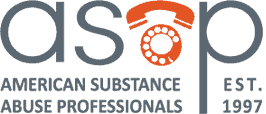By: ASAP
Department of Transportation (DOT) regulated employees must complete drug and alcohol testing at several points in their employment, including pre-employment, post-accident, and random drug testing, among others. What happens if you fail one of these tests? What are the rules for a positive DOT drug test? Read on to learn more.
What drugs does the DOT drug test detect?
The DOT uses urine analysis drug testing to detect the presence of select substances and metabolites. A metabolite is the substance that forms after a drug breaks down in the body. It is the ‘evidence’ left over that indicates the presence of the drug. You may receive a positive DOT drug test result if your urine contains any of the following:
- Marijuana metabolites
- Amphetamines, including MDMA (molly/ecstasy)
- Cocaine metabolites
- Opioids
- Phencyclidine (PCP)
Is a positive drug test the same as a failed drug test?
The terms positive drug test and failed drug test are often used interchangeably; however, there is an additional qualifying term known as a non-negative drug test which gives the positive drug test a different meaning. When you have a positive drug test, it is considered non-negative until it has gone through a review process by a Medical Review Officer (MRO). If it is a commercial driver license (CDL) or commercial learner’s permit (CLP) driver and the violation occurred on or after January 6, 2020, it will also be entered into the Federal Motor Carrier Safety Administration (FMCSA) Clearinghouse. This gives you the opportunity to present proper documentation to explain the positive result, such as a valid prescription.
If the MRO verifies your prescription(s) are valid, the result becomes a negative DOT drug test. Otherwise, if the MRO cannot accept your submitted documentation, the test is ruled as positive and is entered into the Clearinghouse as a violation. How this impacts your employment status can vary based on company policies. Although, if there is any safety concern while the investigation is ongoing, you may be removed from safety-sensitive duties while a final ruling is being determined.
It is important to note that using CBD can result in a failed DOT drug test because CBD products are not FDA regulated and may contain some levels of THC. The DOT Office of Drug and Alcohol Policy and Compliance (ODAPC) issued a notice providing important information for both employers and safety sensitive employees on the facts for DOT testing and CBD products due to the misleading information on CBD product labeling containing marijuana. Until marijuana is legal on a federal level, having a medical marijuana card or using CBD products is not considered an acceptable explanation for a positive DOT drug test. Learn more here: Cannabidiol and Drug Tests (Jupe, 2020).
What happens after a positive DOT drug test?
If you have a non-negative DOT drug test, you will enter into the MRO review process. The impact on your employment will depend on the situation. For example, if you successfully comply with the Medical Review process by presenting a valid prescription from a licensed physician, you are using the proper dosage, and it does not hinder your ability to perform safety-sensitive duties, this could medically explain the non-negative test results and you may be able to return to work as normal after. This will also allow the MRO to report a negative test result to your employer/prospective employer,
If you do not have a valid prescription as a medical explanation for a positive test, you will immediately be removed from DOT safety-sensitive job duties. Next steps for your employment will be determined by the company policy and does not necessarily mean your employment will be terminated. Your employer may have a process in place to complete a program with a qualified DOT Substance Abuse Professional (SAP) as mandated by the DOT under the Return to Duty (RTD) process.
After completing the SAP portion of the RTD process, you will be required to take an observed DOT RTD drug test. If that test shows negative, you will be allowed to return to DOT safety sensitive capacity again. After returning to work, you will be required to have no less than 6 unannounced and observed DOT follow-up drug tests over the next 12 months. The unannounced testing may continue for up to 5 years based on the directive the qualified DOT SAP provides the employer.
How do I get back to work after a failed DOT drug test?
The only way to return to a safety-sensitive position after a positive DOT drug test is to work with a qualified DOT SAP. This person will evaluate your circumstances and recommend treatment or education for you to complete. Upon the successful completion of your recommendations, the same SAP will re-evaluate your eligibility to be released for work.
American Substance Abuse Professionals, Inc. (ASAP), has a network of more than 5,000 DOT qualified SAPs throughout the United States and its territories. We match you with a SAP near you so you can return to work as quickly as possible. Our clients have an 85% success rate in successfully completing the SAP process to be eligible to return to safety sensitive work with our guidance. The enrollment process is quick and easy. Most clients see their qualified DOT SAP within a few days of contacting ASAP. Call 888-792-2727 x177 to enroll today. Call 888-792-2727 x177 to enroll today.
Jupe, N. (2020). Cannabidiol and drug tests. https://blog.employersolutions.com/cannabidiol-and-drug-tests/?utm_source=eloqua&utm_medium=email&utm_campaign=DecNL&utm_term=CBD&utm_content=buttonlink


